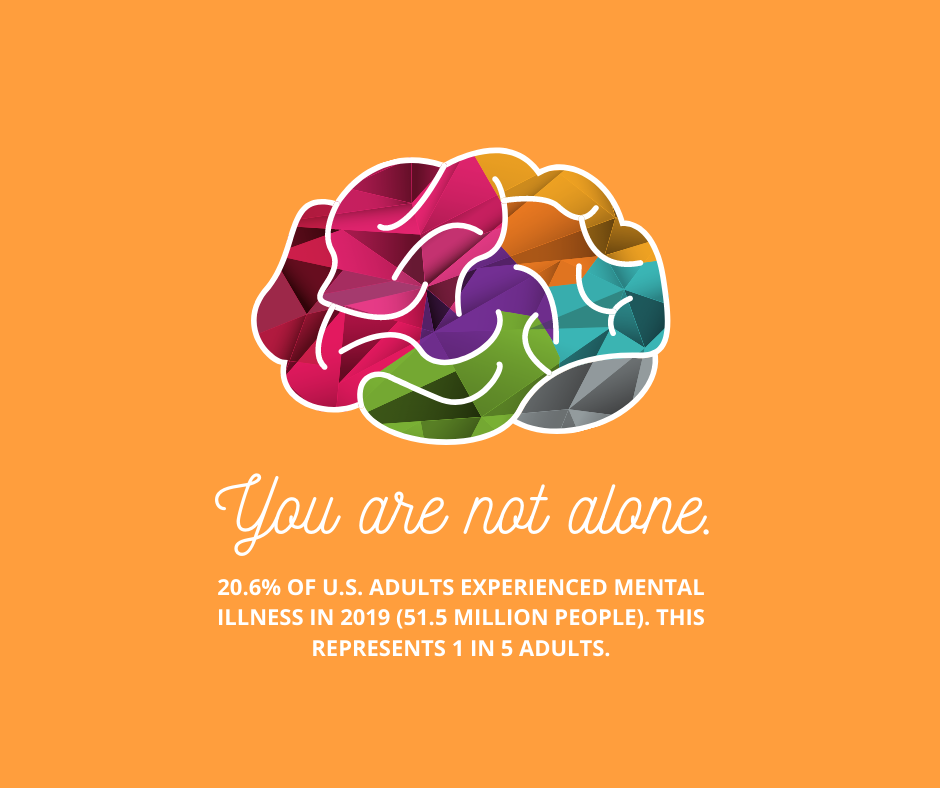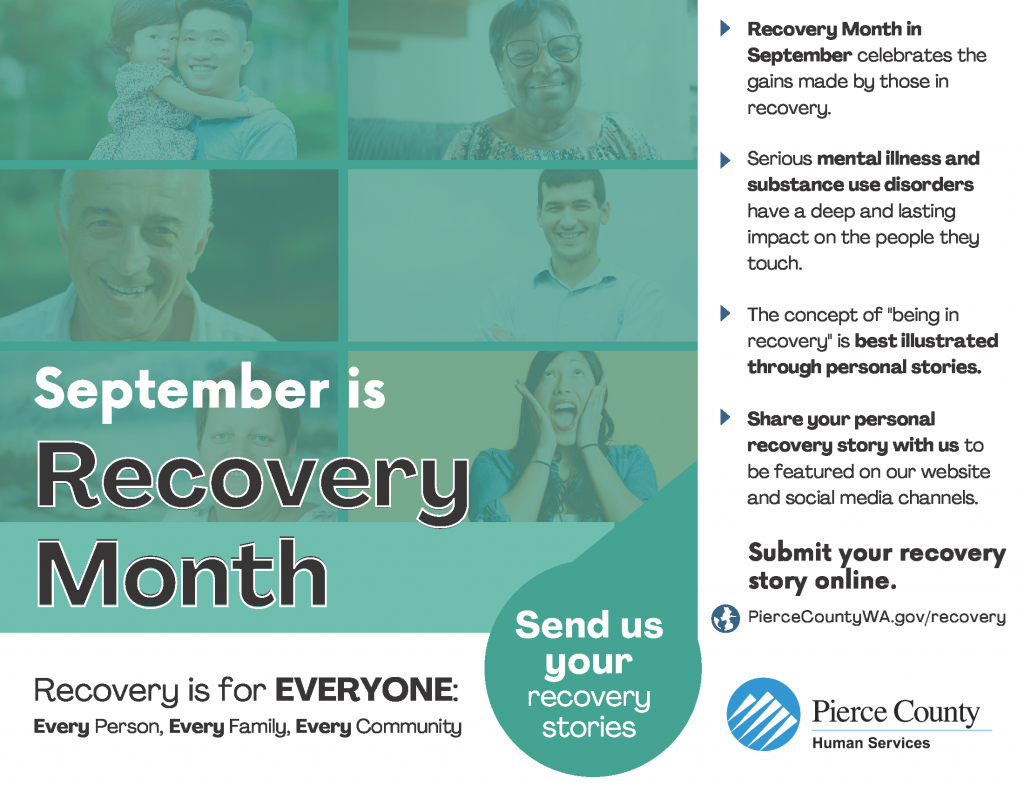September is National Recovery Month! The Substance Abuse and Mental Health Services Administration (SAMHSA) started the National Recovery Month in 1989 to bring awareness to mental health and substance use disorder treatment. This year’s focus is Recovery is for Everyone: Every Person, Every Community, Every Family.
Recovery is for everyone seems a fitting theme for 2021. The pandemic has brought behavioral health issues to the forefront as more of us are feeling the impact of mental health and substance use disorders in our families and communities.
According to the Washington State Department of Health, as many as 2 million Washington State residents reported increased stress and anxiety, and almost 1.5 million experienced depression during the first year of the pandemic. The younger a person was, the more likely they were to experience these symptoms.

Despite the dramatic increase in the need for behavioral health treatment, less than half of those wanting help accessed care. Access to behavioral health treatment is an issue that affects all of us. Families and communities often carry the emotional and financial burden of untreated behavioral health disorders. The good news is there are effective and evidence-based prevention and treatment programs available.
Here are a few steps we can take during Recovery Month to celebrate the gains made by those in recovery:
Fight stigma
Behavioral health stigma occurs when we negatively view someone because they are experiencing a mental health or substance use disorder. Stigma harms those suffering and their families, and often discourages people from getting help because they assume their behavioral health concern means something negative about them as a person.
One way to fight stigma is to educate yourself on mental health and substance use disorders. Instead of falling for the stereotypes found in online media and entertainment, learn how prevalent behavioral health disorders are, what treatments are available, and how they impact individuals and families.
Get help for yourself and your loved ones
If you or someone you care about is experiencing depression, anxiety, substance use issues, or other concerns, get help from a qualified professional. Asking for help takes courage but it is the first step in the journey toward recovery. Find local qualified providers using our Behavioral Health Services Locator.
Tell your story
Sharing your recovery story gives hope to individuals and families facing similar problems. Someone might read your story and be encouraged in their own recovery. Others might seek help for the first time.
To celebrate recovery month, we are asking the community to share their stories with us to be featured on our website and social media channels. If you have a one to share, or know someone who does, please use this link to share your story.
You can read recovery stories from previous years on our website at www.piercecountywa.gov/recovery. Please know that your submission can be anonymous, and you have the option to share as much, or as little as you like.
If you need ideas to get you started, try these:
- How were you or a loved one affected by mental illness or substance use?
- What happened before you or your loved one received help?
- What helped you or your loved one on their path to recovery?
- How are you different today and how are you experiencing recovery?
- What else would you like others to know about recovery?

Remember, recovery is for everyone. No matter who you are or what you are facing there is hope for recovery and help is available. Our website has resources for families and providers, including maps that detail the local crisis system, should you or someone you know need to access these services. Lastly, please join us on August 31 via Zoom for the 3 p.m. Pierce County Council meeting, where they will proclaim September 2021 as Recovery Month.
If you are someone you care about is in crisis, please contact the Pierce County Crisis Line at 1-800-576-7764 or text 741-741. If you have a life-threatening illness or injury that needs immediate assistance, please call 9-1-1.
Thanks for reading.
Richard VanCleave, Behavioral Health Manager
Pierce County Human Services
